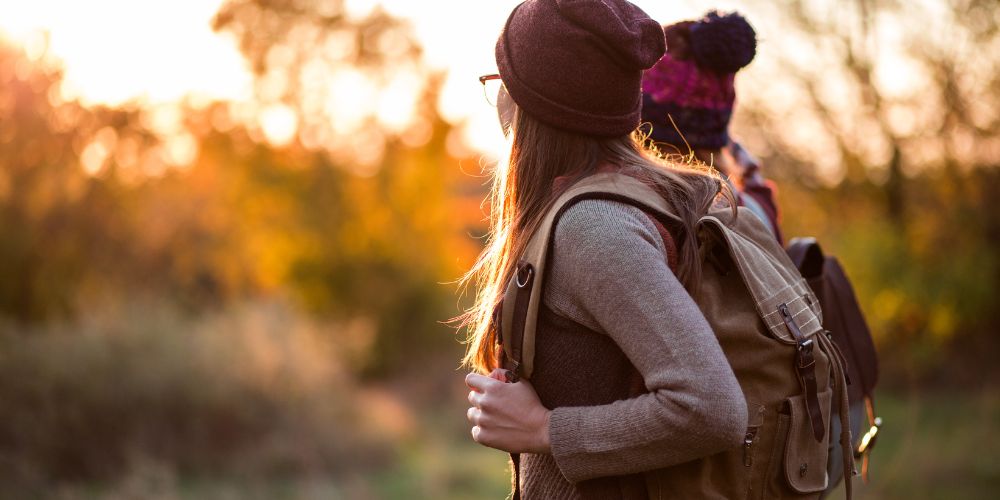Hiking Hacks: Essential Gear and Tips for Beginners Hitting the Trails

You’ve probably heard how hiking is a fantastic way to disconnect, get fresh air, and explore nature. But if you’re new to the trails, it can feel a bit overwhelming.
What do you really need?
How do you stay safe and comfortable?
This guide breaks down the essential hiking gear and friendly tips for beginners to help you hit the trails with confidence.
Beat FOMO by being in the know!
Hiking Gear Essentials for Beginners
Starting with the right gear can make or break your hiking experience for beginners and experts alike.
Here’s what you really need. No fluff, just practical basics to keep you comfortable and safe.
1. The Right Shoes
Choosing the right footwear is crucial. Hiking boots or trail shoes designed for uneven terrain provide the support your ankles and feet need to avoid injuries like sprains or blisters.
Beginners should look for hiking boots with a sturdy sole, good grip, and waterproof features if you expect wet conditions. If you’re hiking in warmer weather or on less rugged trails, lightweight trail runners can work well, offering breathability and flexibility.
And remember …breaking in your footwear before hitting the trail is a must if you want to prevent discomfort and blisters during your hike.
2. Layer On The Comfy Clothes
What you wear during your hike can make all the difference. The key is layering to adjust to changing temperatures and activity levels.
Start with a moisture-wicking base layer made from synthetic fabrics or merino wool. These materials pull sweat away from your skin, keeping you dry and comfortable.
Add an insulating mid-layer like a fleece or lightweight down jacket for warmth.
On top, carry a waterproof and windproof shell to protect you from rain and wind. Avoid cotton clothing because it holds moisture and cools your body down, which can be dangerous in cooler conditions.
PRO TIP: Keep your ankles covered to keep yourself protected from poison ivy, ticks and more ...
3. A Backpack (Without The Bulk)
A good daypack is essential to carry your gear comfortably.
For most day hikes, a 15-25 liter pack is ideal. Look for one with padded shoulder straps and a ventilated back panel to reduce sweating. Compartments and external pockets help organize essentials like snacks, water bottles, and maps.
If you’re planning longer hikes, consider one with a hydration bladder sleeve, so you can sip water hands-free while on the move. Pack light but smart — only bring what you really need.
4. Navigation Tools
Technology is great, but it’s not foolproof. A smartphone GPS app is convenient, but battery life and signal can be unreliable in the backcountry.
Always bring a physical map of the area and a compass, and learn how to use them. Even a basic understanding of map reading can keep you on track and safe. For added security, some hikers carry a small GPS device or a personal locator beacon in remote areas.
5. Hydration
Dehydration is a common mistake for beginners. Carry at least 2 liters of water on a day hike, and more if it’s hot or strenuous.
A hydration bladder inside your backpack makes it easy to drink frequently without stopping. If you don’t have a bladder, water bottles with wide mouths are easier to refill from natural sources (after filtering or purifying).
Remember to drink small amounts regularly rather than waiting until you’re thirsty, which is a sign you’re already dehydrated.
6. Snacks to Fuel Your Adventure
Hiking burns calories, so keep your energy up with nutrient-dense snacks.
Trail mix with nuts and dried fruit offers a great mix of protein, fats, and carbs. Energy bars are convenient and portable, but choose ones low in sugar to avoid crashes. Fresh fruit like apples or oranges can be refreshing on the trail, but pack them carefully to avoid bruising.
Eating small amounts every hour helps maintain your stamina and mood.
7. Safety Items
Even short hikes come with risks, so bring a basic first aid kit tailored for hikers. Include:
- Band-aids
- Blister treatment
- Antiseptic wipes
- Pain relievers
You’ll also want to bring a whistle in case you need to signal for help, especially in areas without cell coverage. A multi-tool or knife is handy for gear fixes, food prep, or other needs.
And, of course, don’t forget sunscreen and insect repellent to protect your skin.
These small items can turn a potential emergency into just a minor inconvenience.
Hiking Tips for Beginners to Make Your Experience Better
Gear is just one part of the equation. How you plan and approach your hike matters just as much.
- Plan Your Route Thoughtfully: Choose trails that match your fitness and experience level. If you are new to hiking, start with shorter, well-marked paths with gentle elevation changes. Research the trail beforehand using local park websites or apps to understand the terrain, expected time, and any hazards. Knowing what to expect helps avoid surprises that can dampen your first hiking experience.
- Tell Someone Your Plan: Always let a trusted friend or family member know your hiking route and expected return time. This is a simple but critical safety practice in case you get lost or injured. Some parks also recommend signing in at trailheads for added safety.
- Start Early: Early morning hikes offer cooler temperatures, less crowded trails, and better chances of spotting wildlife. Starting early also gives you more daylight to finish your hike safely, which is especially important if you’re still getting used to your pace.
- Pace Yourself: Listen to your body. It’s tempting to push through, but taking breaks helps prevent fatigue and injury. Stop every 30-45 minutes to rest, hydrate, and snack. Use this time to enjoy your surroundings — hiking isn’t just exercise, it’s a chance to connect with nature.
- Leave No Trace: Respect the environment by packing out everything you bring in, including food wrappers and tissues. Stay on marked trails to protect plants and reduce erosion. This ethic ensures the trails stay beautiful and healthy for everyone who follows.
- Check the Weather: Weather can change quickly, especially in mountainous areas. Before you leave, check the forecast and plan accordingly. Carry rain gear even if the forecast looks clear — sudden showers are common on many trails.
- Know Basic First Aid: Knowing how to handle common hiking issues like blisters, sprains, or insect bites will boost your confidence and keep you safe. Consider taking a beginner first aid course or watching online tutorials.
Staying Motivated and Building Confidence
Hiking is a skill, and like any skill, it improves with practice. Celebrate small wins — finishing your first 5K trail, reaching a scenic viewpoint, or simply spending a full day outside. Connecting with others through local hiking groups or social media communities can boost your motivation and make hiking more fun. Most importantly, enjoy the process. Every hike teaches you something new.
Hiking For The First Time: What Beginners Expect Expect
Expect a bit of challenge mixed with plenty of reward.
Your muscles might feel sore, and you might feel tired, but the fresh air, beautiful views, and sense of accomplishment make it all worth it.
Take your time, breathe deeply, and savor the experience. The more you hike, the more natural it becomes.
Ready to Hit the Trails with Confidence?
Hiking is one of the best ways to recharge your mind and body. With the right gear, solid planning, and these beginner-friendly tips, you’ll set yourself up for a safe and enjoyable adventure.
It’s not about rushing to the summit — it’s about the journey, the connection to nature, and the simple joy of stepping outside.
RELATED: 8 Scenic Trails In Ontario You'd Be A Fool Not To Explore …
Beat FOMO by being in the know!
Sign up for our newsletter today and never miss a beat.







